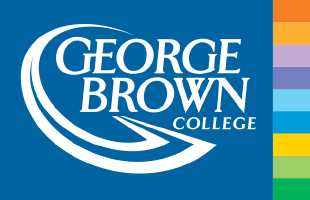Take Advantage of Module Exemptions to Earn a Second Technical Certificate
Did you know that graduates of the Electromechanical Technician (EM) Certificate program are eligible for module exemptions when they take another online technical training certificate program from GBC’s School of Distance Education? Take advantage of this and earn another certificate to enhance your skills and resume!
Some of our online technical training certificate programs have overlapping module content. That means that graduates of one program do not have to repeat these modules in their second technical certificate. They will receive credit for these modules, allowing them to save time and money.
Here are the current module exemptions across all programs:
|
Program |
ET |
EM |
RT |
AT |
PLC |
PLC II |
|
Electronics Technician (EM) |
x |
18 |
none |
1 |
none |
none |
|
Electromechanical Technician (ET) |
18 |
x |
1 |
5 |
2 |
1 |
|
Robotics Technician (RT) |
none |
1 |
x |
5 |
2 |
1 |
|
Automation Technician (AT) |
1 |
5 |
5 |
x |
6 |
8 |
|
PLC Technician |
none |
2 |
2 |
6 |
x |
7 |
|
PLC II Technician |
none |
1 |
1 |
8 |
7 |
x |
Let’s look at a practical example—based on the chart above, an EM graduate planning on taking the Automation Technician (AT) Certificate program would be eligible for 5 module exemptions because they would have already completed the overlapping modules.
A common option for our EM graduates who want to obtain another certificate is the Electronics Technician Certificate program, as they share a lot of content. EM graduates are eligible for 18 module exemptions when working on the ET program, which means that they will only need to complete 6 new modules out of the 24 total ET modules. They will save over $1000, only needing to pay $645 in additional costs to earn this second credential.
The common modules between the Electronics and Electromechanical Certificate Programs are:
|
EM Certificate Modules |
ET Certificate Modules |
|
1 - Introduction to Electronics |
1 - Introduction to Electronics |
|
2 - Current, Voltage & Resistance |
2 - Current, Voltage & Resistance |
|
3 - OHM'S Law, Power & Energy |
3 - OHM'S Law, Power & Energy |
|
4 - Series Circuits |
4 - Series Circuits |
|
5 - Parallel Circuits |
5 - Parallel Circuits |
|
6 - Series Parallel Circuits |
6 - Series Parallel Circuits |
|
7 - DC Measuring Instruments |
7 - DC Measuring Instruments |
|
8 - Industrial Control Devices |
8 - Network Theorems |
|
9 - Magnetism |
9 - Magnetism |
|
10 - DC Motor and Control Circuits |
10 - Magnetic Circuits |
|
11 - Alternating Voltage & Current |
11 - Alternating Voltage & Current |
|
12 - AC Measuring Instruments |
12 - AC Measuring Instruments |
|
13 - Capacitance and Capacitors |
13 - Capacitance and Capacitors |
|
14 - Inductance and Inductors |
14 - Inductance and Inductors |
|
15 - Transformers |
15 - Transformers |
|
16 - AC Motor and Drives |
16 - Alternating Current Circuits |
|
17 - Analog and Digital Transducers |
17 - Resonance |
|
18 - Industrial Process Control |
18 - Coupling and Filter Circuits |
|
19 - Semiconductor Fundamentals |
19 - Semiconductor Fundamentals |
|
20 - Transistors and Thyristors |
20 - Transistors and Thyristors |
|
21 - Amplifier Circuits |
21 - Amplifier Circuits |
|
22 - Integrated Circuits |
22 - Integrated Circuits |
|
23 - Digital Electronics |
23 - Digital Electronics |
|
24 - Programmable Logic Controllers |
24 - Microprocessors |
If you are considering taking another one of our programs or have any further questions on module exemptions, please contact a Program Consultant toll-free at 1-888-553-5333.
